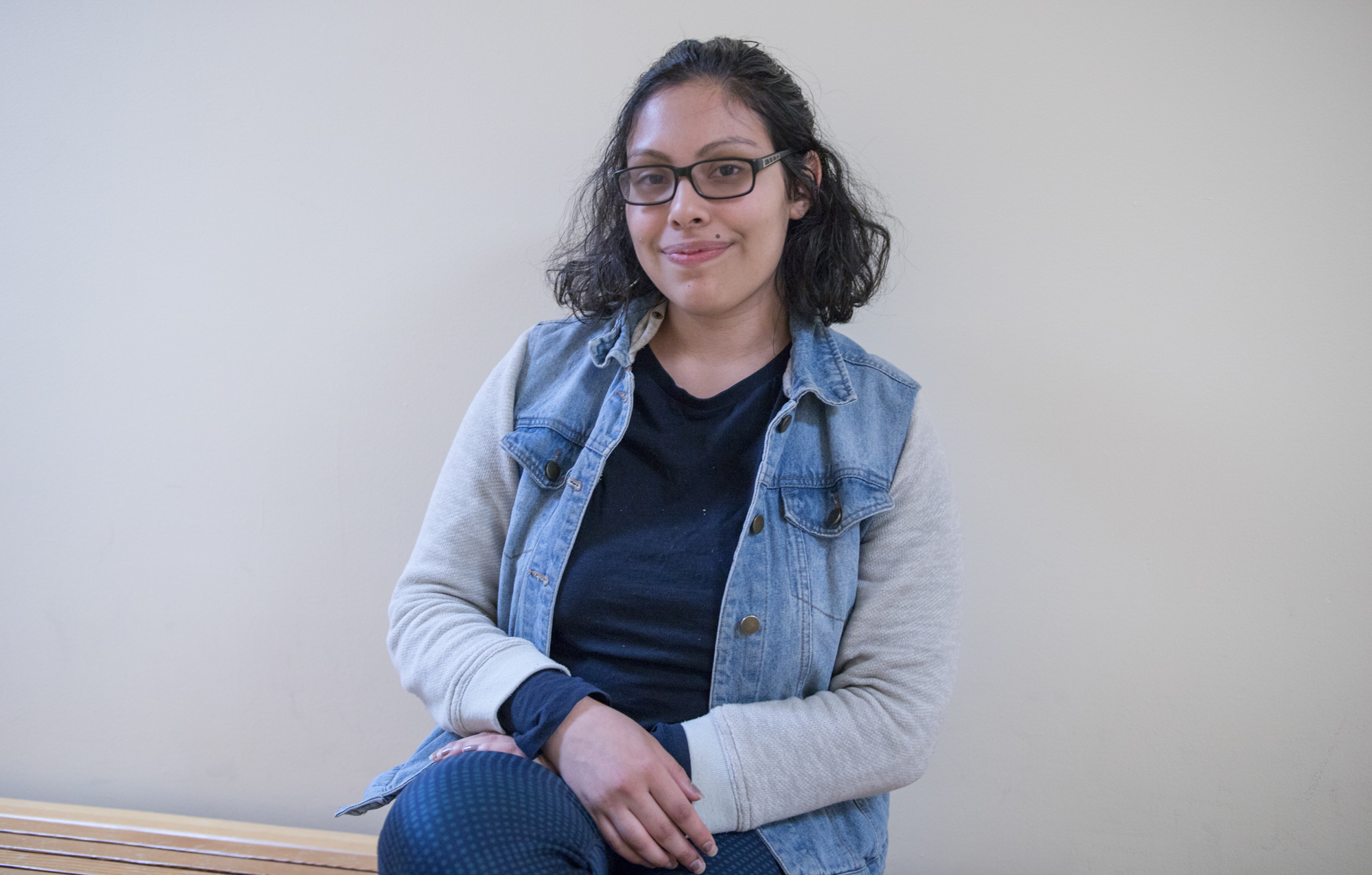Last semester in a Caribbean Literature class, junior Maria Aragon got to study transgender scholarship in college for the first time.
Writing a paper on the experiences of transgender people in Jamaica was an eye-opening experience, the English and film studies major said.
“I was like, ‘Why isn’t this more readily available?'” Aragon said.
In October, they began to put together a club to change that.
[Read more: Pronouns Pronouncement Day strives to improve transgender inclusion at UMD]
Reading Rainbow, an LGBT reading, writing and film club, held its first meeting in February. Aragon, who serves as the president, said the group meets once a week in the University of Maryland’s LGBT Equity Center to examine stories and writings by queer authors, participate in writing exercises and watch movies.
At the most recent meeting, the group spent 10 minutes silently writing about what it would be like to live in a world without institutions of any kind — including schools, banks and corporations.
The center is housed in a cozy room on the third floor of Marie Mount Hall, the walls of which are adorned with colorful posters and lined with shelves overflowing with books. Members sit in bean bag chairs and lounge on couches, arranged in a circle around a small coffee table.
[Read more: UMD hosts annual awards ceremony honoring women’s contributions to university]
The goal, Aragon said, is to give LGBT students a space to consume and discuss material that is representative of their own experiences. So far, about five people have come to each meeting, they added, but they expect to gain more members in the future.
This university offers minor and certificate programs in LGBT studies, but Aragon said they would like to see more options for students who want to study the works of queer thinkers, particularly in the field of English.
English majors are required to take at least one course “in the literature of African Americans, peoples of color, women, and/or lesbians, gays, and bisexuals,” according to the department’s website.
“That, to me, is not enough,” Aragon said.
Clarissa Corey-Bey, a senior English major who attends every Reading Rainbow meeting, agreed, estimating that in the majority of required English courses on this campus, “you could go into those classes and never read about a person of color, about a queer person.”
“Our voices are really undervalued on this campus,” they said. “It’s systemic.”
The English department offers four courses that are specifically focused on LGBT literature or film, said Christine Walter, the department’s undergraduate studies director. While those classes are not necessarily offered every semester, she added, several “special topics” courses focusing on LGBT topics are also often available to students.
“What the students are saying is no surprise to an English department anywhere — that is a traditional problem,” Walter said.
Walter said her department helped guide Aragon through the process of establishing Reading Rainbow and advertises the group’s meeting location and times on their website.
She added that the department has hired three new faculty members who will start work next fall, all of whom focus, at least in part, on queer studies.
Anna Storti, a graduate student in the women’s studies department who is currently teaching LGBT200: Introduction to Lesbian, Gay, Bisexual, and Transgender Studies, said she often hears from students who tell her that it’s “so great” to finally be able to study queer literature in school.
“Representation matters,” Storti said, adding that she hopes to be able to convey to her students that “someone like me is important enough to be seen.”
Corey-Bey said they have chosen to focus on “the stories and voices of marginalized bodies” in their studies and have taken classes on queer literature, feminist theory, Caribbean literature and blues and folk songs.
“We have a responsibility as an institution and as readers to push the field,” Corey-Bey said. “And a part of that, I think, is being more inclusive in whose writing you study.”
While they added that they appreciate spaces such as Reading Rainbow and the opportunities provided to students, they wished such initiatives weren’t necessary.
“It’s a colossal failure to realize that our education is being [compensated for] by students,” Corey-Bey said, adding with a laugh that this university is “not paying Maria to have Reading Rainbow.”
“You’re paid to make a syllabus, to have a department, to teach us something,” they said, “and we have to fill in the holes.”



